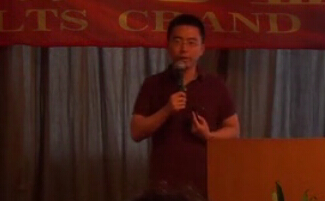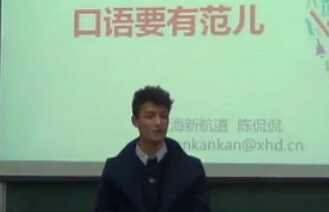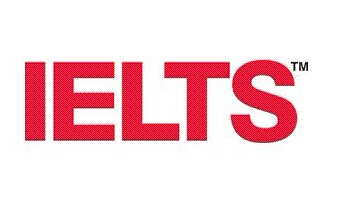雅思考试阅读精选训练题(10)
2013-07-29 14:14 供稿单位: 新航道
出国英语考试有哪些 雅思6.5是什么水平 雅思阅读评分标准 托福阅读评分标准 雅思和托福的区别
★new weapon to fight cancer
1. British scientists are preparing to launch trials of a radical new way to fight cancer, which kills tumours by infecting them with viruses like the common cold.
2. If successful, virus therapy could eventually form a third pillar alongside radiotherapy and chemotherapy in the standard arsenal against cancer, while avoiding some of the debilitating side-effects.
3. Leonard Seymour, a professor of gene therapy at Oxford University, who has been working on the virus therapy with colleagues in London and the US, will lead the trials later this year. Cancer Research UK said yesterday that it was excited by the potential of Prof Seymour's pioneering techniques.
4. One of the country's leading geneticists, Prof Seymour has been working with viruses that kill cancer cells directly, while avoiding harm to healthy tissue. "In principle, you've got something which could be many times more effective than regular chemotherapy," he said.
5. Cancer-killing viruses exploit the fact that cancer cells suppress the body's local immune system. "If a cancer doesn't do that, the immune system wipes it out. If you can get a virus into a tumour, viruses find them a very good place to be because there's no immune system to stop them replicating. You can regard it as the cancer's Achilles' heel."
6. Only a small amount of the virus needs to get to the cancer. "They replicate, you get a million copies in each cell and the cell bursts and they infect the tumour cells adjacent and repeat the process," said Prof Seymour.
7. Preliminary research on mice shows that the viruses work well on tumours resistant to standard cancer drugs. "It's an interesting possibility that they may have an advantage in killing drug-resistant tumours, which could be quite different to anything we've had before."
8. Researchers have known for some time that viruses can kill tumour cells and some aspects of the work have already been published in scientific journals. American scientists have previously injected viruses directly into tumours but this technique will not work if the cancer is inaccessible or has spread throughout the body.
9. Prof Seymour's innovative solution is to mask the virus from the body's immune system, effectively allowing the viruses to do what chemotherapy drugs do - spread through the blood and reach tumours wherever they are. The big hurdle has always been to find a way to deliver viruses to tumours via the bloodstream without the body's immune system destroying them on the way.
10. "What we've done is make chemical modifications to the virus to put a polymer coat around it - it's a stealth virus when you inject it," he said.
11. After the stealth virus infects the tumour, it replicates, but the copies do not have the chemical modifications. If they escape from the tumour, the copies will be quickly recognised and mopped up by the body's immune system.
12. The therapy would be especially useful for secondary cancers, called metastases, which sometimes spread around the body after the first tumour appears. "There's an awful statistic of patients in the west ... with malignant cancers; 75% of them go on to die from metastases," said Prof Seymour.
13. Two viruses are likely to be examined in the first clinical trials: adenovirus, which normally causes a cold-like illness, and vaccinia, which causes cowpox and is also used in the vaccine against smallpox. For safety reasons, both will be disabled to make them less pathogenic in the trial, but Prof Seymour said he eventually hopes to use natural viruses.
14. The first trials will use uncoated adenovirus and vaccinia and will be delivered locally to liver tumours, in order to establish whether the treatment is safe in humans and what dose of virus will be needed. Several more years of trials will be needed, eventually also on the polymer-coated viruses, before the therapy can be considered for use in the NHS. Though the approach will be examined at first for cancers that do not respond to conventional treatments, Prof Seymour hopes that one day it might be applied to all cancers.
(665 words)
Questions 1-6
Do the following statements agree with the information given in the reading passage? For questions 1-6 write
TRUE if the statement agrees with the information
FALSE if the statement contradicts the information
NOT GIVEN if there is no information on this in the passage
1.Virus therapy, if successful, has an advantage in eliminating side-effects.
2.Cancer Research UK is quite hopeful about Professor Seymour’s work on the virus therapy.
3.Virus can kill cancer cells and stop them from growing again.
4.Cancer’s Achilles’ heel refers to the fact that virus may stay safely in a tumor and replicate.
5.To infect the cancer cells, a good deal of viruses should be injected into the tumor.
6.Researches on animals indicate that virus could be used as a new way to treat drug-resistant tumors.
以上就是新航道雅思频道为大家整理的雅思考试阅读精选训练题(10),希望对大家有帮助,更多资讯、资料请访问新航雅思写作频道 https://www.xhd.cn/ielts/zhentiyuce/
- 上一篇:雅思阅读模拟练习题(1)
- 下一篇:雅思考试阅读精选训练题(9)
分享到:

- 新航道,英语成功之道。时间获取新航道英语学习资料和新鲜资讯,请在微信公众账号中搜索「新航道英语」或者「xhdenglish」,或用手机扫描左方二维码,即可获得新航道每日精华内容推送和英语学习经验分享,并参与新航道举办的各项活动。
责编:李术
精彩专题
更多视频荟萃
更多
-
新航道姚骏鹏-雅思阅读高分攻略
时长:03-06

-
新航道陈侃侃-雅思口语要有范儿
时长:03-06

-
【3分钟学雅思】王大锤告诉你为啥药不能停
时长:01-12

-
【3分钟学雅思】全世界个感官餐厅
时长:01-12
热门文章
更多
-
8月31日雅思广州考机考初体验
选择机考模式的考生将通过机考模式参加听...








